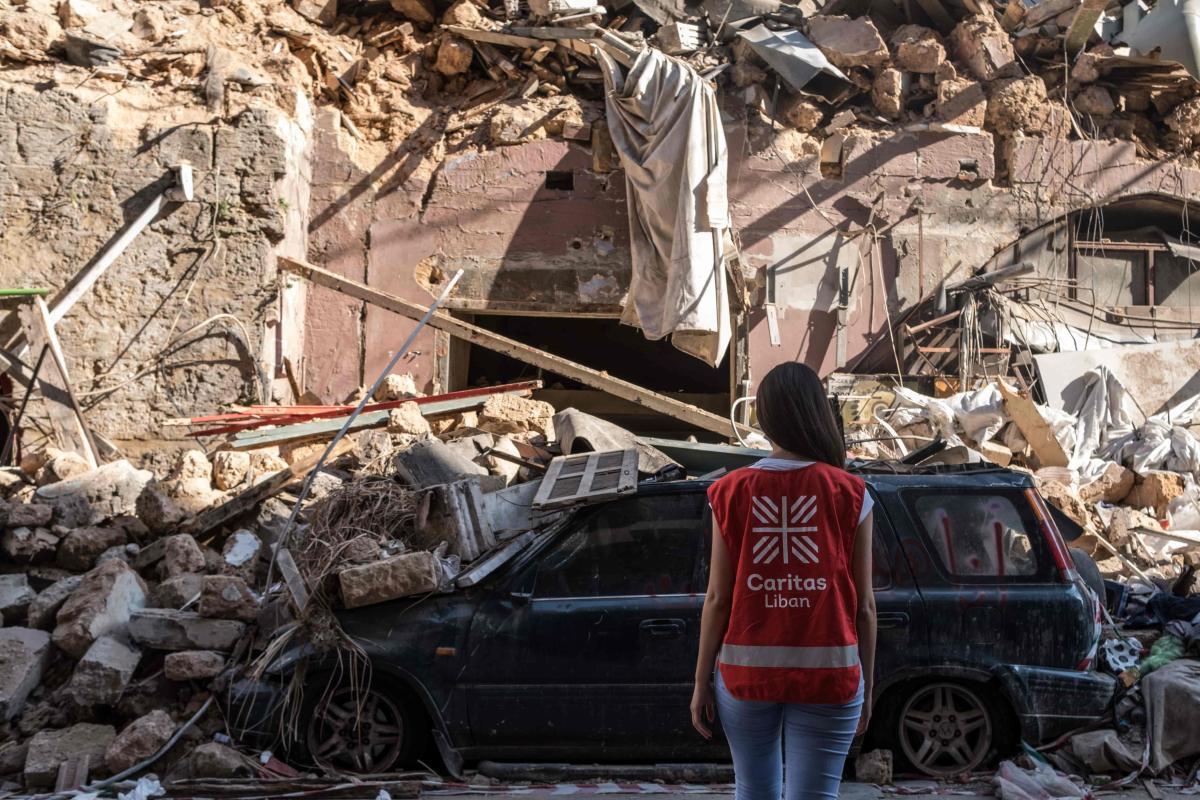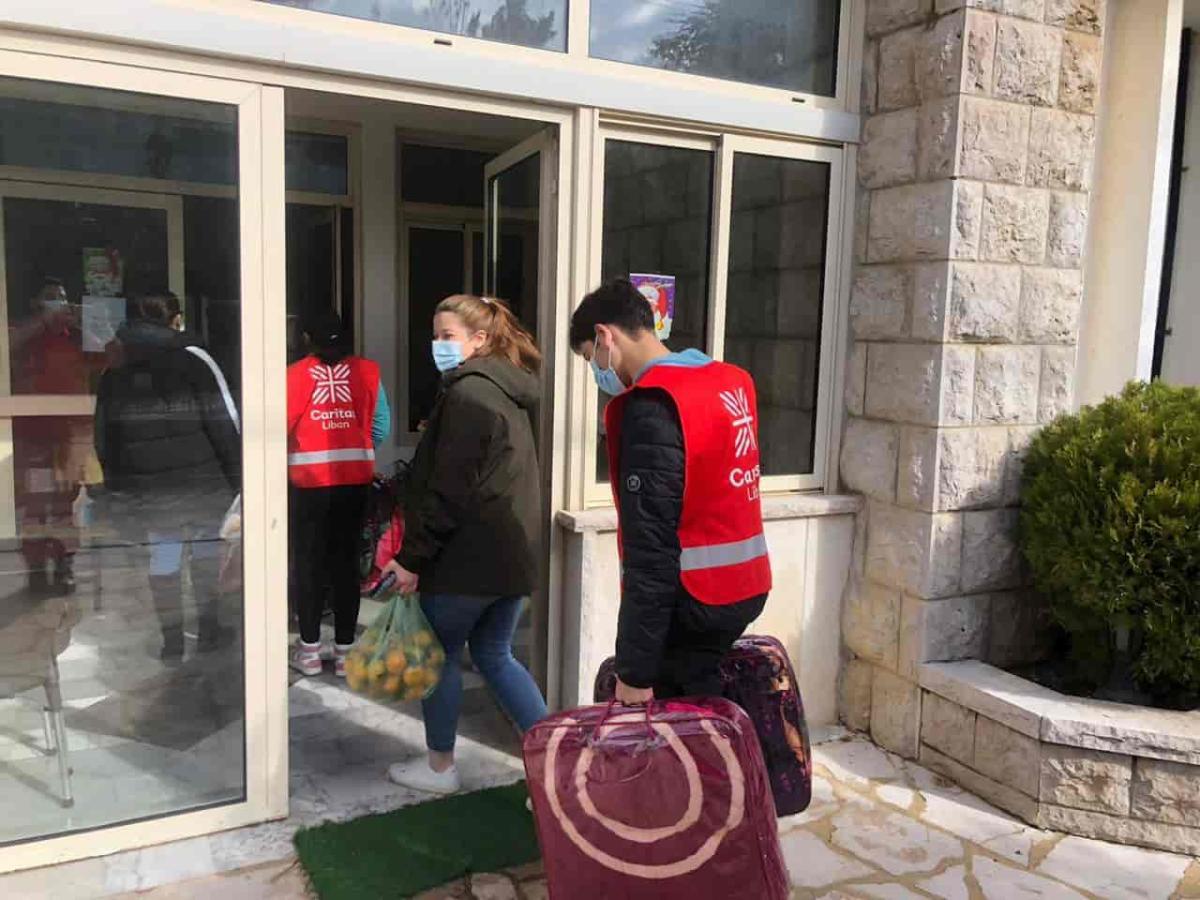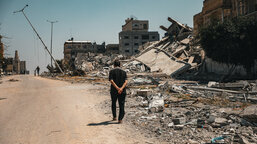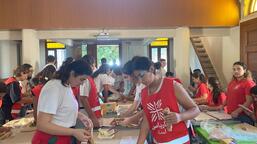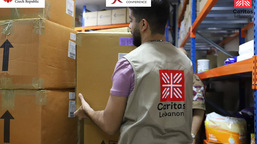The war between Hezbollah and Israel is having a dramatic impact on civilians in Lebanon in particular. Over 1.2 million people, more than a quarter of the population, have fled their homes from shelling. It is impossible for a country long facing a socio-economic and political crisis to take care of them. What is the situation on the ground? How is it affecting ordinary people? Kristýna Kvasničková, who has lived in Lebanon until recently, explains this in an interview.
You have lived in Lebanon for two years and still have many friends there. How are they experiencing the current situation?
Each of them is experiencing it differently. I notice that their reactions come in waves. One moment they seem to be handling it quite well, but then suddenly panic takes over. Some of my expat friends have decided to stay in Lebanon for work or humanitarian reasons, but many of them have left the country if they could. Unfortunately, many Lebanese do not have that option. Either they do not have a visa or enough money. A lot also depends on the community they live in. Most of the attacks target Muslim areas, while Christian areas are a little safer. But the reality of the war is felt everywhere in Lebanon.
The security situation has been escalating dramatically. Israel is also shelling places near the international airport and the main crossing into Syria, where thousands of people flow out of the country. Is there any way to get out of Lebanon now?
Lebanon's air traffic is still working, but only the Lebanese airlines. However, tickets are sold out long in advance and are very expensive. Many people cannot afford to buy them. Most places that can be flown to also require an entry visa. And that is not easy to get. So is a passport, which can take up to a year to obtain. Another option is to take a boat to Cyprus, but paying a thousand dollars for the trip is unthinkable for many people. There are also evacuation flights organised for foreigners. More than 185,000 people, mainly Syrians and Lebanese, have already fled to Syria.
We often discuss with friends that someone's parents or grandparents do not want to leave Lebanon, where they are used to. They are still hoping that the situation will improve, or they believe that the worst is definitely behind them in Lebanon. It is a great helplessness for their children because they cannot get their parents somewhere safer.
The fighting has caused thousands of casualties, most of them in the last few days alone. How are your friends trying to protect themselves and their loved ones?
It is hard. Of course, the best is if they can leave the country. But as I mentioned, not everyone has that option. So, some people are trying to at least leave big cities, for example to the mountains, so that they are not in the places being bombed. But unfortunately, it is never certain where the bomb will fall.
The towns in Lebanon are very densely populated and people have nowhere to hide from the shelling or nowhere to run to. In Lebanese houses, there are usually no cellars or shelters. People in Lebanon survive day by day. They try to help each other and stay in touch with their loved ones to make sure that they are okay.
The war between Hezbollah and Israel has driven 1.2 million people from their homes. That is a huge proportion of the five million population of Lebanon. At the same time, the Lebanese economy is in a very bad shape, so the government has no chance of taking care of so many displaced people. What do the people of Lebanon need most right now?
What would help most would of course be if the bombing stopped and the invasion ended, so that people could start repairing their destroyed homes and damaged infrastructure. But what people are immediately concerned with at the moment is the provision of the most basic human needs such as food, water, sanitation and health care.
Due to the long-standing humanitarian crisis, the state is not able to take care of people and they are dependent on the help of NGOs to survive. If their aid did not exist, the crisis would most likely be much worse. Moreover, the people of Lebanon are themselves very active in helping others. As they have gone from one crisis to another over the years, they are used to helping each other. Some of my friends, for example, have turned their bar into a canteen where they serve hundreds of meals a day to the displaced people.
We have mentioned that Lebanon is facing a severe economic crisis. What impact will the current war have on the economy and people's daily lives?
The situation in Lebanon was already bad before the current escalation. I cannot imagine how the people there must feel now. The current situation will have a catastrophic impact on people who live in poorer areas. There are just over five million people in Lebanon, of whom more than one million are displaced. Even if the bombing were to stop now, the vast majority have nowhere to return to and reconstruction will take a very long time.
You have lived in Lebanon for a long time. How have you personally experienced the complicated situation in which the country currently is? What did you do in Lebanon?
I lived in Lebanon, specifically in Beirut, for 2 years. During this time, I worked on research on refugees and forced migration, focusing on Syrians and the Middle East. At the same time, I worked for an NGO that brought medicine from the Czech Republic and helped other organizations there.
I consider Lebanon my second home. The people there are incredibly friendly, and kind and willingly accepted me in their midst. I am sorry that I cannot remedy the situation they are currently living in. However, despite all that the country is going through, I plan to go back and live there again for some time.


